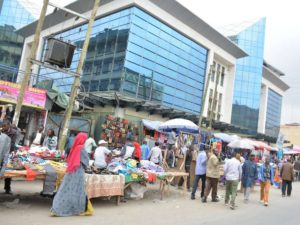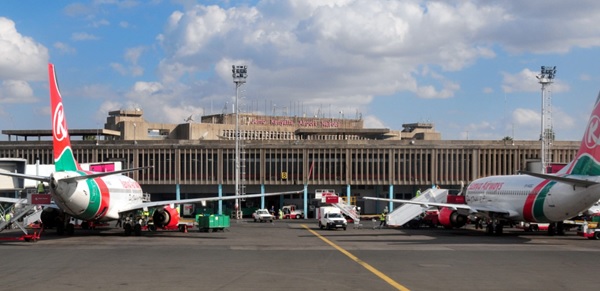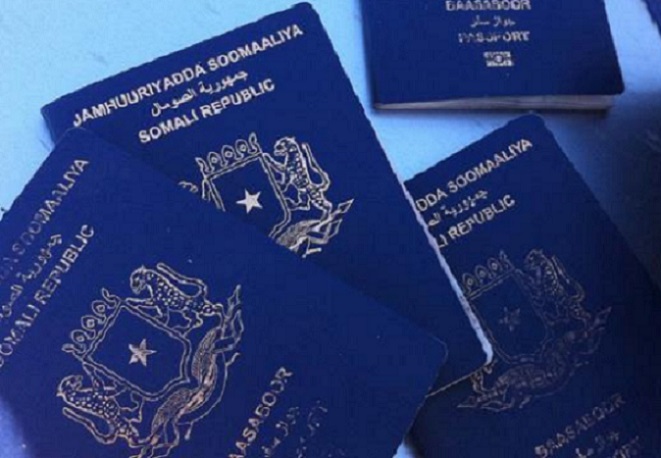By Abdifattah H. Ali and Ilyas M. Hussein

Kenya has been more generous, more supportive and kinder to Somali people than any other country in the greater Horn of Africa region. It has hosted the largest Somali refugees in one of the world’s biggest refugee complex shortly after Somalia’s civil war broke out in 1991. Those who were once refugees in Dadaab and Kakuma are among today’s most successful persons in Kenya and even in other parts of the world. For an example, Ilhan Omar, the first Muslim black congresswoman in the US was once a refugee in Dadaab for four years after fleeing Somalia’s conflict. Kenya and Somalia have enjoyed long neighborhood partnership bonded by brotherhood, shared values and, of course, shared borders. Thousands of Somali nomads cross the border between Somalia and Kenya every day for businesses, trade and other work related purposes.
Somalis in Kenya
Currently, an estimated 2.5 million Somalis live permanently or temporarily in Kenya, making them among one of the largest ethnic communities of the 43 tribes in Kenya. As a matter of fact, Somali ethnic decent lived in Kenya before the colonial rule. In the early 20th century, the Somali-speaking community, which were mostly nomads, established themselves in the northeastern regions of Kenya.
However, during the past decade or so, there has been a serious mistreatment faced by many Somalis travelling to Kenya as well as those who live inside the country. Those who are transiting at Jomo Kenyatta International Airport (JKIA) are not spared too. It all starts with applying Kenyan visa by Somali passport holders which is extremely bureaucratic and costly process. It might be difficult to believe but a Somali citizen has to pay at least $500 on top the normal visa fee which is just $50 to get Kenyan Single entry visa. It has become lucrative business for many notorious travel agents and corrupted Kenyan immigration officials. This is a non-negotiable fee and failing to pay it means no visa will be granted.
What happened? What went wrong?
A Somali citizen who had serious skull injury had to wait his medical visa for 10 days to almost giving it up. Later on, he was granted only after the Kenyan immigration was pressured by colleagues from the UN and other international agencies.
A mother and her children, who had appointment with the Swedish Embassy in Nairobi, had to travel by road from Mogadishu to Nairobi after their visas were rejected four times. She was asked to pay the illegal visa fee ($500), which was beyond her capacity with her 6 children. That would have been $3,500.

Another humanitarian aid worker (a Somali passport holder) had to miss two international conferences in Geneva after he missed his visa appointment in Nairobi. He was waiting his Kenyan visa in Mogadishu for almost one month. In fact, the visa was issued by the Kenyan Embassy in Mogadishu, but he was told it was under process.
Transiting at JKIA
For Somalis transiting at JKIA, it is even worse. They have to spend long hours at the transit area because they are not allowed under any circumstances to enter the country while on transit. However, the irony is that all other East African citizens, including those neighboring to Somalia (Djibouti and Ethiopia), as well as most other Africans, are granted their visas on arrival at JKIA.
The Kenyan government puts strict visa measures for Somali passport holders using “security threat” as pretext, but this is beyond just protecting the country and its people. It is understandable, given Somalia‘s current security context, that Kenyans protect their borders and their people, but charging Somalis with $500 for single visa is totally unacceptable. However, this illegal visa fees must be discontinued. Anyone who poses security threat of course must be barred from Kenya.
Kenyan citizens travelling to Somalia
Unlike Somalis who are mistreated and humiliated at JKIA, Kenyan nationals, who are willing to visit or work in Somalia, can obtain upon arrival in Somalia. The moment a Kenyan citizen decides to fly to Somalia, all he/she needs is to book a ticket, pack his/her bag and fly to Mogadishu next day! While in Adan Adde International Airport, or any other airport in the country, the Kenyan national will e granted 90-day visa upon his/her arrival.
There are hundreds of Kenyans and other nationals working with the UN, NGOs, private businesses such as hotels, and restaurants in Mogadishu. Then, there are those who regularly visit Somalia, which is a good indication that the country is becoming more open and more generous to foreigners. However, all of these foreign nationals are granted visa on arrival.
Unbalanced diplomatic relations
The diplomatic and trade relationship between Somalia and Kenya can be termed as unbalanced and one-sided, which only benefits Kenyans. For instance, Somalia imports Khat (Mira) from Kenya on daily bases. Khat is time-consuming, economically destructive and healthily dangerous drug chewed by Somalis. It’s very addictive drug that has negative impact on the lives of humans. According an article published on Foreign Policy Journal, around 15 cargo planes or more arrive in Somalia on a daily basis, carrying tons of Khat and costing millions of dollars.
Moreover, Somalia imports coffee from Kenya in large quantities. In fact, according to recent statistics, Somalia has become the third largest importer of Kenyan products. According to businessdailyafrica.com and capitalfm.co.ke, Somalia has become the third largest destination for Kenya’s merchandise in the continent.
Somalis go to Kenya for medical as well as educational purposes. Additionally, since the collapse of Somalia’s central government, there have not been functioning embassies and consulates in Mogadishu. Therefore, most of Somalis travelling abroad would fly to Kenya for visa appointments. So far, Somalis contribute a lot to the Kenyan economy. From the Somalia side, there is no significant export to Kenya, which means that Somalia is in very high trade deficit with its Kenyan counterpart.
Given the tiring, unfair, and expensive visa process in Kenya for Somalis, not to mention the extortion, mistreatment and discrimination meted against them, it’s necessary that both Somali and Kenyan governments urgently address this matter. From the Kenyan government’s side, it’s essential it change its policy towards Somalis regarding the visa process and their treatment within Kenya. The Kenyan government must put an end to the current unjust practices against Somali citizens. It should also make the corrupt immigration officers accountable to their misdeeds and other illegal acts.
The Somali Federal government should also address this issue and sit with its Kenyan counterpart by demanding change in the visa process and resolve this matter diplomatically.
Retaliation as a last resort
If, however, Kenyans ignore the Somali government’s call, the last resort is to touch the weak point of Kenya. This means that the Somali government should increase tariffs on Khat imported from Kenya, which will hurt the Kenyan economy. If this strategy fails, there should be total ban of the Khat.
Somalia should also encourage its citizens to shift to Addis Ababa, the capital of Ethiopia, for visa appointments, medical checkups or connecting with other flights. This is because; the Ethiopian government has recently opened its borders to all Africans, including Somali citizens. As a matter of fact, all Somali passport holders can now get their visa on arrival at Addis Ababa Bole International Airport.
Abdifattah H. Ali
Email: abdifattah2020@gmail.com.
Twitter @IamAbdi5) and
Ilyas M. Hussein
Email: ilyo.zaan@gmail.com.
Twitter @IlyoZaan)
——————
Related articles:
–Eastleigh: Somalis’ new home in Kenya By Umayma Goth
–EASTLEIGH: WHAT’S IN A NAME? By NEIL CARRIER


Leave a Reply